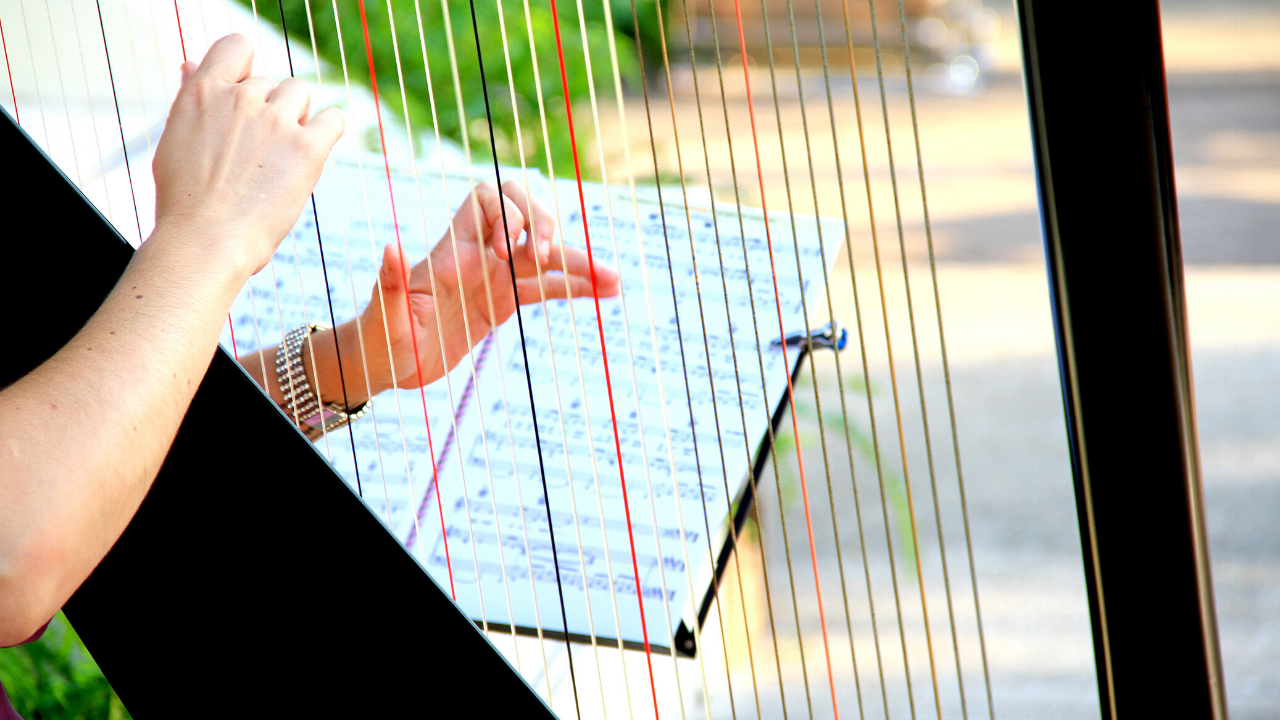Do You Want to Be a Better Harpist? Follow the 5 B’s!
Nov 23, 2022
By Anne Sullivan
Learning to play the harp can seem very complicated. The harp itself is complicated. You have to learn how to move levers or pedals, change strings that break, play hands separately and hands together, figure out fingering, learn to count and use the metronome. There are lots of challenges, to be sure.
But becoming a better harpist isn’t really about those things. Those are skills we need to learn, but the real fundamentals we need to become better harpists are not so specific. It may surprise you to learn that they aren’t so difficult either.
There are a few habits that, if you practice them, will help you develop into a better harpist. In fact these habits are so powerful that you will notice a difference almost immediately. I have five habits which I call “the 5 B’s” that I share with my students. The students that embrace these habits make progress quickly and enjoy their practice and playing. If that sounds good to you, read on and learn my 5 B’s.
- Be organized. A little bit of organization can help prevent a lot of frustration and wasted time. What do you need to organize? First, organize your schedule. Keep a calendar that you can share with your parents and check it every day. This will help you organize your practice time so you don’t have to scramble to fit practice in each day. And then there’s organizing your music and your harp accessories like your tuning key, your strings, your tuner and metronome, etc. Create a system that works for you and stick to it.
- Be a listener. Being a musician isn’t just about playing; it’s about listening, specifically listening to music. When we listen to music, not just hear it in the background but listen with attention, we learn so much, even if we aren’t aware of it. We learn the ways composers use the building blocks of music like melody, harmony and rhythm. We learn how master performers use musical expression to turn plain notes into music that sings. We learn the different styles that are part of our musical history. And all these things can help us learn music faster and play it better.
- Be a sponge. Be ready to learn new things and new ways of doing things from your teacher, from other musicians, from your ensemble leaders, even from your parents. The student who is willing to learn and grow is the student who has the most fun. As that paper towel company says, you can try to be the “quicker picker upper.”
- Be a questioner. Learning also means asking questions. The most interesting discussions I had with my teachers were the result of questions I asked. These could be questions about why we do things a certain way, or how to do something better, or what your teacher learned from her teachers. Don’t keep those questions to yourself; ask them. The answers might surprise you!
- Be excited. Playing the harp is an adventure. Be open to opportunities. Be ready to accept the new challenges they bring. You never know what you might discover about music, the harp or yourself. You might find a new kind of music or playing that you love. You might discover a talent you didn’t know you had. Fun things are waiting for you. Go play and enjoy!
One important thing to note is that the first B, being organized, may be the hardest one to tackle. So I will add a sixth B: be sure to ask for help. Your teacher and your parents can help you find simple ways to organize and they can also help you stay on track. Remember they want you to become a better harpist, too!
GET OUR BLOG POSTS DELIVERED WEEKLY
We hate SPAM. We will never sell your information, for any reason.


